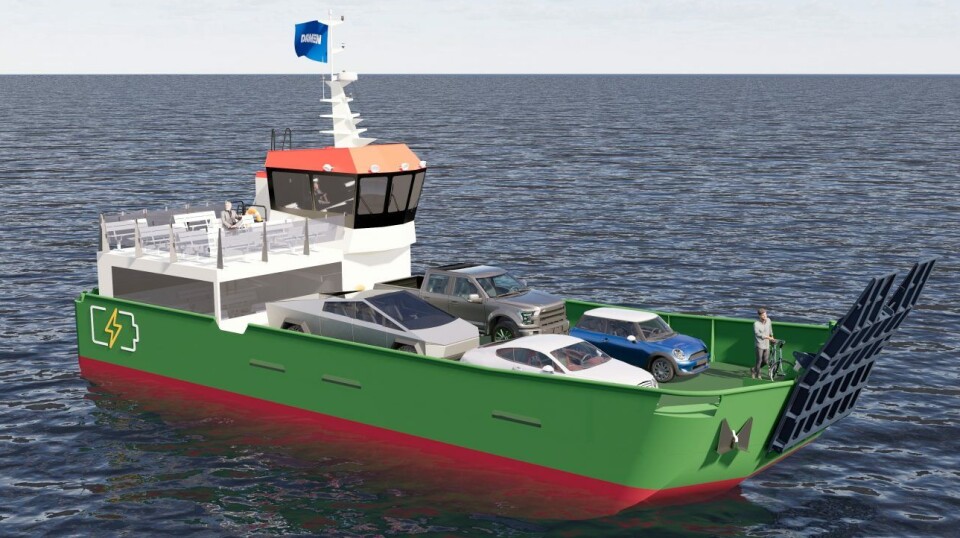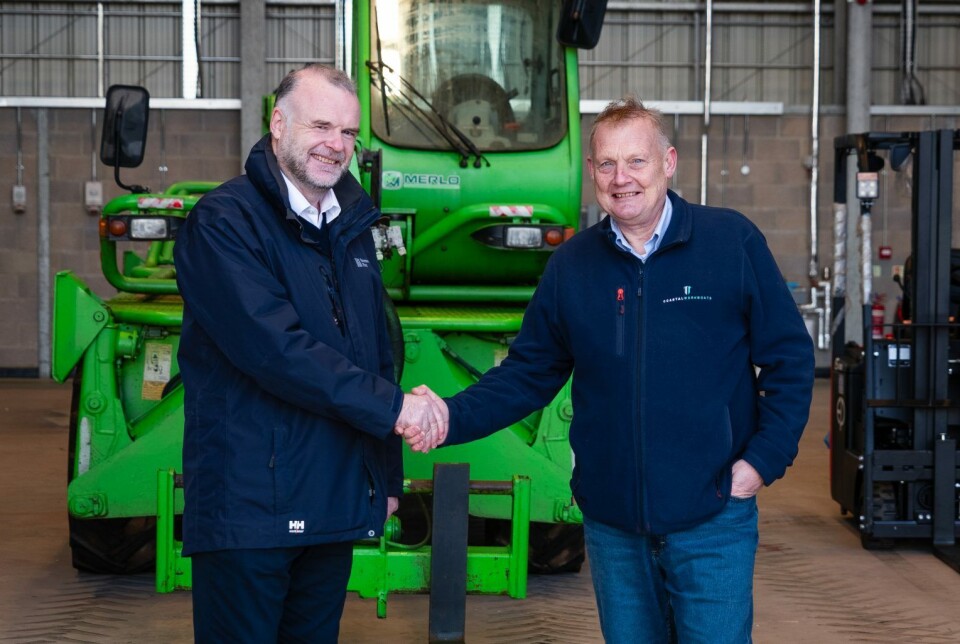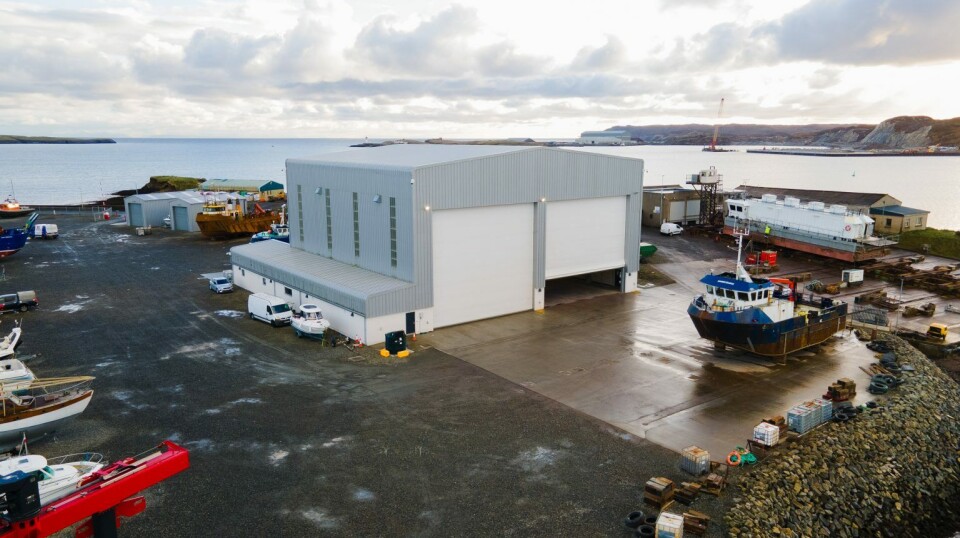
UK’s first electric workboat to be built in Stornoway
A Devon-based boat builder that supplies the Scottish aquaculture sector is to begin constructing the UK’s first electric-powered workboat on the Isle of Lewis after signing a 10-year lease agreement with Stornoway Port.
Coastal Workboats has built landing utility vessels (LUVs) for salmonid farmers such as Loch Duart, Kames, and Organic Sea Harvest, some to its own design and some to a design by Dutch company Damen.
In May last year the company announced plans to open a Scottish workshop on the Clyde, but later opted for ready-built facilities on Goat Island in Stornoway Harbour instead.
It has said that the Stornoway facility will become its primary fabrication centre, creating around 25 jobs within the local marine manufacturing sector.
Workboat and ferry
Projects are scheduled to commence in a workshop before the close of 2023, with the company initially constructing an electric workboat funded by a £6.2m million grant from the UK government.
A UK first, the Damen-designed E-LUV will be suitable for use in aquaculture and the ferry industry. A five-week trial is set to commence in 2025 on Shetland’s Papa Stour to West Burrafirth route. The route will run twice daily, five days a week, with a one-way journey time of 45 minutes.
Most workboats are deployed in areas with low or no grid power to support recharging of e-vessels. The new E-LUV addresses this via its accompanying shore-based power unit which can be used to recharge the vessel, power other applications and, with rapid-charging capability, significantly reduce vessel turnaround. The power unit can also be carried on the E-LUV’s deck, significantly extending the vessel’s working range and enabling underway charging.

£9m project
The project is part of the Clean Maritime Demonstration Competition Round 3 (CMDC3), which was announced in September 2022, funded by the UK Government and delivered in partnership with Innovate UK. CMDC3 allocated £6.2m to the £9m E-LUV project, with further funding supported by Damen.
The construction of the workshop at Goat Island had received funding contributions from Highlands and Islands Enterprise (HIE), Comhairle nan Eilean Siar (CNES), the Scottish Government’s Regeneration Capital Grant Fund (RCGF), and Stornoway Port Authority.
Coastal Workboats director Brian Pogson said: “As a family-run company, we’ve taken pride in building Coastal Workboats on a foundation of community, actively engaging with a local workforce and supplier network throughout each chapter of our work. We’re therefore thrilled to continue this family-and-friends ethos with our move to Stornoway – investing in, learning from and growing with a fantastic community with a national reputation.”
First-class facility
Damen Shipyards UK sales manager Mike Besijn said: “Damen support Coastal Workboats in their move to Stornoway, Scotland. This first-class boat building facility is close to many of our joint customers in the inter-island ferries and the aquaculture industries.
“It is our goal to support Coastal’s long term commitment to the facility and their drive to create sustainable local work by assisting in the continuity of future orders and supporting the build of a wider range of Damen designs. For today, this initial order of the Damen E-LUV is the perfect first step to demonstrate the capabilities of both companies.”
Alex Macleod, chief executive of Stornoway Port Authority, said: “The facility at Goat Island is world-class, with overhead cranes specifically designed for vessel construction and we are thrilled to support Coastal Workboats as they undertake these ambitious projects. This agreement also marks the return of a dedicated shipbuilder in Stornoway for the first time in 100 years, and we are proud to have played our part in bringing this industry back to the island.”
























































